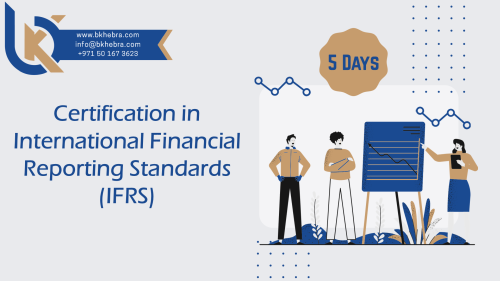| Training Code | Date | Duration | Venue | Fees |
|---|---|---|---|---|
| Keep following, we are updating our training schedules. | ||||

This certificate provides an introduction to International Financial Reporting Standards (IFRS). Locally qualified accountants and auditors can now upgrade their skills to meet the challenges involved in adopting and implementing international standards in their workplace. An educational or professional background in financial reporting is recommended prior to commencing the Cert IFR certification. The course also provides the trainee with how to use and how to deal with international financial reporting standards and how to benefit from them in practical life and in preparing accounts and financial statements for companies of all kinds. And since these standards are international standards, they allow the trainee the ability to read the financial statements in any of the countries of the world and how to compare the financial statements of similar companies all over the world.
On successful completion of this training course, BK’s Certificate with eligible Continuing Professional Education credits (CPE), will be awarded to the delegates , one CPE credit is granted per 50 minutes of attendance.